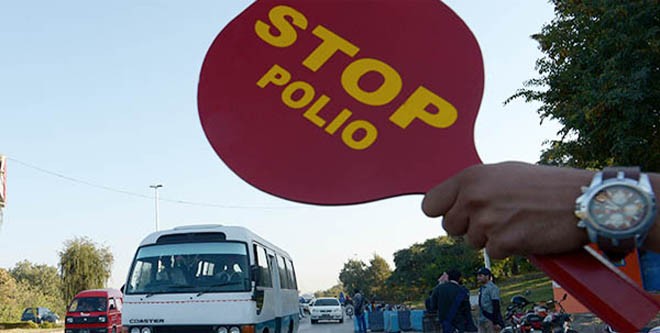

Soon after the killing of Osama Bin Laden, international organisations, such as Unicef and World Health Organisations (WHO) spent a lot of time to clarify their position on Dr Shakil Afridi’s vaccination campaign. However, it took both the organisations over a year to come out with a strongly worded statement to distance them from Afridi.
After an investigation by the Pakistani security agencies and health department officials, it was found that the campaign Dr Shakil had conducted in Abbottabad was, in fact, not meant for polio.
"There is growing misconception among the people and they associate polio vaccines with an attempt by the government to control birth rate, which is totally wrong," a senior official of WHO tells TNS in Peshawar on condition of anonymity.
He says some clerics have been speaking publicly against polio vaccination through loud speakers and publications, asking people not to get their children vaccinated as, according to them, it is un-Islamic and an attempt to cause infertility. "The state and its institutions have been unable to counter propaganda against polio vaccination," the WHO official says.
It is due to this malicious propaganda that polio workers are being targeted everywhere in the country.
Besides the mainstream Taliban, led by Maulana Fazlullah, two major militant groups which are not part of the TTP, operating in South Waziristan and North Waziristan, headed by Bahawal Khan alias Salahuddin Ayubi and Hafiz Gul Bahadur, respectively, had banned polio campaign in their respective tribal regions two years ago to protest the US drone strikes.
The government has not been able to reach 160, 000 children in North Waziristan and 75,000 in South Waziristan for the past two years to vaccinate them against polio virus due to ban on campaign by the militants.
A senior official of Khyber Pakhtunkhwa department, Dr Jan Baz Afridi, who heads immunisation campaign in the province, says polio workers had started facing serious security challenges after Dr Shakil Afridi ran the fake campaign in Abbottabad. "People started hating all health workers, particularly those engaged in vaccination campaign and considered them spies," he adds.
According to WHO, 33 polio workers have been killed and nine others injured between July 2012 and January 2014.
Besides the dismal security situation, field workers, who are considered the backbone of campaign, have been complaining of low-wages and long duty hours in the field. "The government and foreign donors have been spending millions of dollars on seminars and workshops but paying only $2.05 per day to a worker to risk his or her life. Field workers are losing interest, as this is less than a labourer can earn a day," says Farah Naz, lady health worker, based in Peshawar.
Also, she complains that field workers are not paid their wages in time. "There is a serious disconnect between workers and high-ranking officers that draw high salaries, drive armoured cars, and stay in 5-star hotels. And there is no insurance of health workers in Pakistan," she says.
In November last year, 11 schoolteachers were kidnapped in the Bara subdivision of Khyber tribal region as they were administering the vaccine. They were later released.
Mufti Ghulam-ur-Rahman, a known religious scholar in Peshawar, recommends the government should develop a comprehensive communication strategy and run a campaign with full force to overcome the distrust in communities about polio vaccination campaigns. "Religious and political leadership should jointly support the polio eradication programme," he says.
According to the latest genomic sequencing results of the Regional Reference Laboratory for Poliovirus, 83 out of 91 polio cases in the country during the last year are genetically linked to the polio virus circulating actively in Peshawar.
Eighty-six samples of sewage water were collected from different locations of Peshawar since the last four years, and 72 of these samples have shown the presence of the highly contagious and paralytic wild polio virus strain.
Forty five polio cases have been reported in Peshawar in the last five years and four in 2013. The cases of 65 children paralysed by polio in Fata are said to be linked to the Peshawar virus.